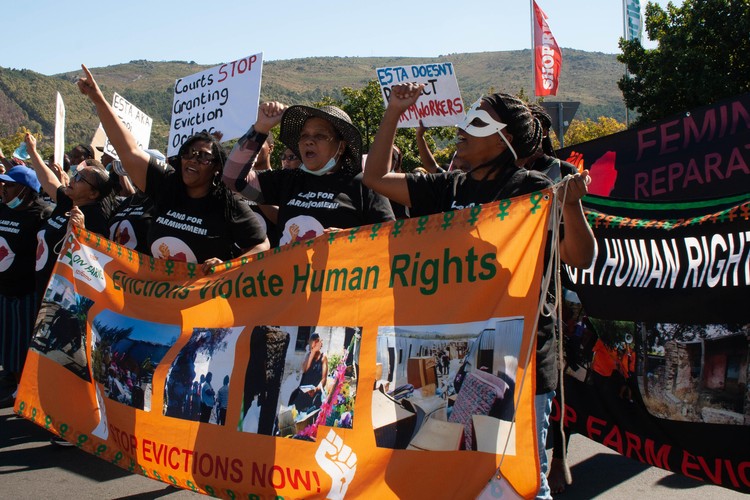
25 April 2023
Drakenstein Municipality wants the Supreme Court of Appeal (SCA) to overturn a Western Cape High Court ruling that found it had failed in its constitutional obligations to provide emergency housing to those facing eviction. Archive photo: Liezl Human
Drakenstein Municipality is heading to the Supreme Court of Appeal (SCA) to challenge a High Court ruling that it had failed in its constitutional obligations to provide emergency housing to those facing eviction. Many of those facing eviction in region are farm workers and their families.
The judgment was handed down by Western Cape High Court Acting Judge Bernard Martin on 28 July 2022. He ruled that the municipality was legally obliged to make reasonable provision from its own financial resources for emergency housing. The order stated that it was unlawful for the municipality to rely primarily on funds received from the provincial government to fund its emergency housing plan.
The ruling reiterated the Constitutional right to adequate housing and government’s obligation to provide it, particularly for those facing eviction. The judge said the municipality has failed to meet these obligations “to an extremely vulnerable group”.
This matter was initially brought by farm dweller Eric Lolo from Wellington. He applied to the Western Cape High Court on behalf of himself and others living in rural areas in Drakenstein, to hold the municipality accountable over what he argued was inadequate emergency housing to vulnerable groups living in rural areas. After the judgment, the municipality filed an appeal in 2022. Judge Martin dismissed the appeal in March 2023.
The municipality has now applied to the SCA, arguing that the High Court’s ruling could have far-reaching policy ramifications. In its application to the SCA the municipality says the High Court made several errors in its judgment.
The municipality argues that the High Court did not understand its submissions about the availability of land for emergency housing, and the use of municipal funds. The municipality said it “does not exclusively rely on provincial funding to meet its emergency housing obligations”.
In the papers submitted to the High Court, the municipality had said that 500 housing opportunities had been planned in the Vlakkeland housing project but that the provincial government “scuppered” this plan by its refusal to support the construction of a temporary relocation area..
In response to GroundUp’s questions, Seraj Johaar, executive director of corporate services at the Drakenstein Municipality, said it was “simply not feasible” for the municipality to use its own funds on the Vlakkeland project “over the objections from the provincial government”.
Johaar said Drakenstein’s housing policy “in relation to disadvantaged rural dwellers is in fact more generous than other municipalities in the Western Cape” and that it “reserves 20% of all new opportunities for rural dwellers”.
Johaar said the municipality had always taken its responsibility to provide emergency housing seriously.
“Emergency accommodation is a direct failure by the national government to adequately plan for and fulfil its Constitutional mandate of providing access to housing in terms of Section 26 of the Constitution. Unfortunately, local government is too often the scapegoat for the failures of other spheres of government,” said Johaar.
The date for the SCA matter is yet to be announced.